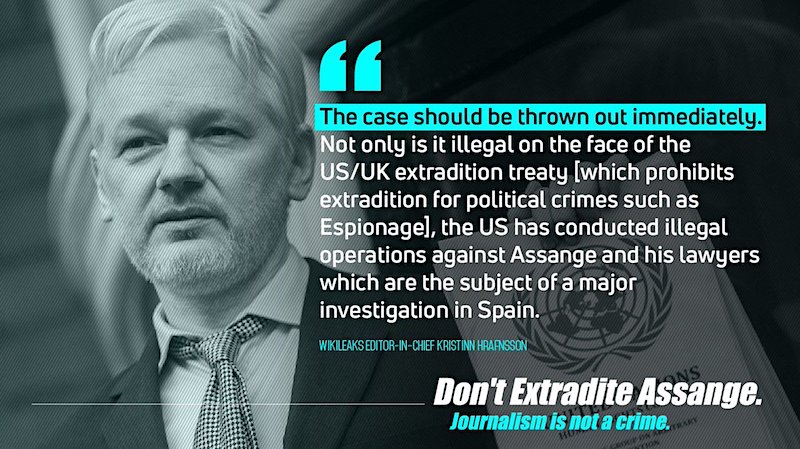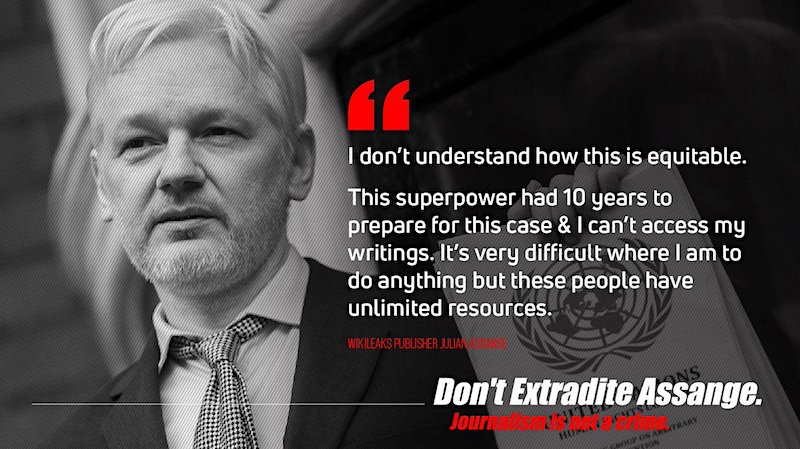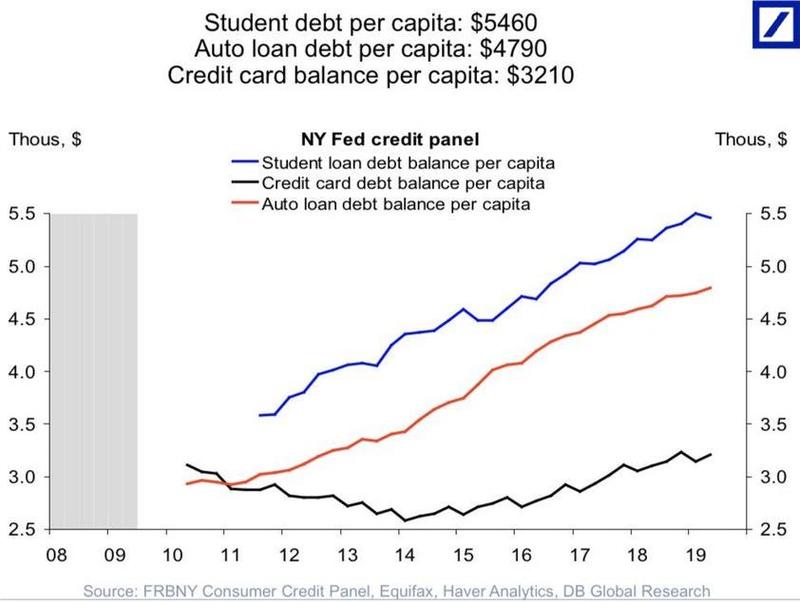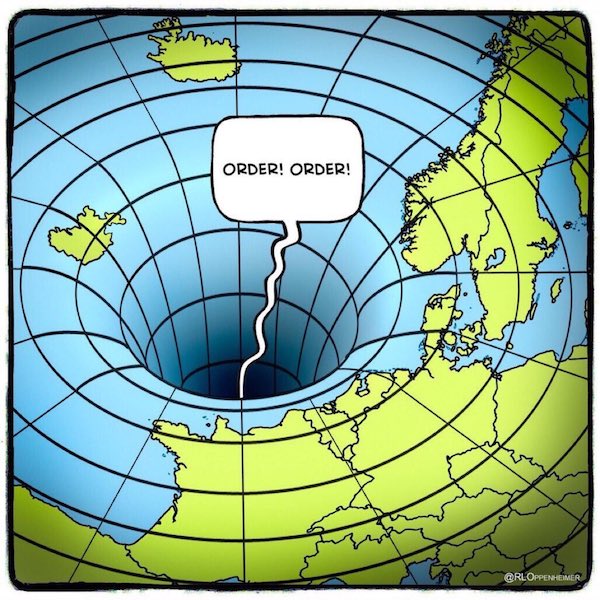
Eugène Delacroix Liberty Leading the People 1830

Had a hard time getting going today. What happened with Julian Assange was too much to deal with. And on reflection, it only gets worse.
If Jeremy Corbyn or any else gets up in Parliament today or tomorrow and speaks about anything else than Julian Assange, you know he’s a useless piece of crap. Well, yes, you know that already. As Julian Assange has been reduced to a vague shadow of himself, Britain has been reduced to a lawless medieval banana republic, where someone can be tortured to death in full view, while agents of a foreign country run proceedings in the courts.
And the million or so who came out in London for extinction rebellion or a Final Say, you are all completely useless drips too. You’re incapable of discerning what is truly important. Which is that your government flouts all laws, British and international, with impunity. And then it makes no difference if those laws are defined by your own country or as part of a European Union. Torturing a man to death in 2019, with nary a protest being heard, is truly taking all of you back to the Middle Ages. At some point the question becomes: If you allow for the best, brightest and bravest amongst you to be treated this way, then what right or reason do you have to stick around?
Here’s what Craig Murray said:
I had been even more sceptical of those who claimed, as a senior member of his legal team did to me on Sunday night, that they were worried that Julian might not live to the end of the extradition process. I now find myself not only believing it, but haunted by the thought.

Then who does? “..the judge told Assange that the court had no jurisdiction over the conditions of his imprisonment..”
• Julian Assange Struggled To Remember His Name At Extradition Hearing (ND)
Assange’s barrister Mark Summers QC said Assange cannot be extradited for political offences. “Our case will be that this is a political attempt to signal to journalists the consequences of publishing information. It is legally unprecedented,” he told the court. Assange’s solicitors Birnberg Peirce later issued a statement further clarifying that extradition for political offences is “prohibited and unlawful” under the UK-US extradition treaty of 2003. Mr Summers said he was deeply concerned about Assange’s ability to prepare for his case, given he has had no computer access since his incarceration began. He also explained that the case was growing increasingly complicated as new evidence came to light.

Earlier this month Spain’s National Court announced it was investigating whether a Spanish security firm spied on Assange in the embassy with hidden microphones and other devices. The information was allegedly passed to Ecuadorean and US authorities. “The American state had been actively engaged in intruding into privileged discussions between Mr Assange and his lawyers in the embassy, also unlawful copying of their telephones and computers (and) hooded men breaking into offices,” Mr Summers said. He told the court there had been “plans to kidnap and harm” Assange. Mr Summers asked Judge Baraitser to delay the extradition trial and to extend the length of the five-day hearing so his client could adequately prepare evidence. But the judge told Assange that the court had no jurisdiction over the conditions of his imprisonment and said he would not be granted any more time.

“..unlawful “copying” of Assange’s telephones and computers, and “hooded men breaking into lawyers’ offices”..”
• ‘I’m In An Unfair Fight Against A Superpower,’ Assange Tells UK Court (SMH)
A gaunt, hesitant and apparently confused Julian Assange has told a London judge he is in an inequitable fight against a superpower that has been spying on his “interior life” and on confidential meetings with his legal team. The WikiLeaks founder is trying to avoid extradition to the US to face 17 espionage charges and one computer hacking charge. His legal team revealed on Monday they want to deal a knockout blow to the case against him, by establishing that the charges are a “political offence” for which extradition cannot be granted. Assange appeared in person before District Judge Vanessa Baraitser in Westminster Magistrates Court, appearing tired and unwell and speaking hesitantly.
“I can’t think properly,” he complained at the end of the brief administrative hearing, saying the US had “unlimited resources” and an “unfair advantage”. “I can’t research anything [in prison], I can’t access any of my writing, it’s very difficult where I am [in Belmarsh Prison in South London] to do anything,” he said. “This is not equitable what’s happening here.” His lawyer Mark Summers, QC, told the court the US administration was prosecuting Assange in a “concerted and avowed drive to escalate its existing war on whistleblowers, to encompass investigative journalists”. “Our case is that it is a political attack to signal to journalists the consequences of publishing [classified] information.”

Summers appealed for extra time to gather evidence in support of Assange’s case, after allegations emerged this year that a Spanish security firm had been passing on to US intelligence agencies video, audio and documents secretly gathered during Assange’s time in the Ecuador embassy in London. Last week a judge of the Spanish National Court issued an order to investigate the Cadiz company Undercover Global, for “crimes against privacy and the secrecy of lawyer-client communications, bribery and money laundering”, in response to a complaint from Assange’s lawyers that Undercover Global had installed hidden microphones at the embassy and delivered information to Ecuador authorities and “agents of the United States”.
“The American state has been actively engaged in intruding on privileged discussions between Assange and his lawyers,” Summers told the Westminster court on Monday. He said there was evidence of unlawful “copying” of Assange’s telephones and computers, and “hooded men breaking into lawyers’ offices”. Assange complained to the judge the US had obtained details of his “interior life” through psychologist reports, and suggested they had tried to get hold of his children’s DNA. Kristinn Hrafnsson, the official WikiLeaks representative, said outside court that this was a reference to claims US agents had even collected DNA samples from nappies discarded at the embassy.
Assange’s legal team, in a note distributed outside the court, said there was evidence before Spanish courts of “a sustained series of actions by a Spanish security company in conjunction with US intelligence services to obtain information by unlawful acts, theft and clandestine surveillance within the Ecuadorian embassy whilst Julian Assange was present there”. “They included … the deliberate targeting and theft of information from the phones and electronic devices of lawyers advising and doctors treating Julian Assange, and the recording of their meetings. “Further, the private telephones of distinguished journalists visiting the embassy were photographed with data taken sufficient to hack their telephones thereafter.”

I’ll do this Craig Murray piece in two parts. He was at the court yesterday. Murray is a close adviser and friend to Julian. First, his personal thoughts…
• Assange in Court (Craig Murray)
I was deeply shaken while witnessing yesterday’s events in Westminster Magistrates Court. Every decision was railroaded through over the scarcely heard arguments and objections of Assange’s legal team, by a magistrate who barely pretended to be listening. Before I get on to the blatant lack of fair process, the first thing I must note was Julian’s condition. I was badly shocked by just how much weight my friend has lost, by the speed his hair has receded and by the appearance of premature and vastly accelerated ageing. He has a pronounced limp I have never seen before. Since his arrest he has lost over 15 kg in weight. But his physical appearance was not as shocking as his mental deterioration. When asked to give his name and date of birth, he struggled visibly over several seconds to recall both.
I will come to the important content of his statement at the end of proceedings in due course, but his difficulty in making it was very evident; it was a real struggle for him to articulate the words and focus his train of thought. Until yesterday I had always been quietly sceptical of those who claimed that Julian’s treatment amounted to torture – even of Nils Melzer, the UN Special Rapporteur on Torture – and sceptical of those who suggested he may be subject to debilitating drug treatments. But having attended the trials in Uzbekistan of several victims of extreme torture, and having worked with survivors from Sierra Leone and elsewhere, I can tell you that yesterday changed my mind entirely and Julian exhibited exactly the symptoms of a torture victim brought blinking into the light, particularly in terms of disorientation, confusion, and the real struggle to assert free will through the fog of learned helplessness.
I had been even more sceptical of those who claimed, as a senior member of his legal team did to me on Sunday night, that they were worried that Julian might not live to the end of the extradition process. I now find myself not only believing it, but haunted by the thought. Everybody in that court yesterday saw that one of the greatest journalists and most important dissidents of our times is being tortured to death by the state, before our eyes. To see my friend, the most articulate man, the fastest thinker, I have ever known, reduced to that shambling and incoherent wreck, was unbearable. Yet the agents of the state, particularly the callous magistrate Vanessa Baraitser, were not just prepared but eager to be a part of this bloodsport.
She actually told him that if he were incapable of following proceedings, then his lawyers could explain what had happened to him later. The question of why a man who, by the very charges against him, was acknowledged to be highly intelligent and competent, had been reduced by the state to somebody incapable of following court proceedings, gave her not a millisecond of concern.
EXCLUSIVE: Julian Assange pictured in prison van leaving Westminster Magistrates Court following hearing pic.twitter.com/3lpze90Ty6
— Barnaby Nerberka (@barnabynerberka) October 21, 2019

… and then his description of how it’s Americans who openly call the shots in a British courtroom.
• Assange in Court – 2 (Craig Murray)
For the prosecution, James Lewis QC stated that the government strongly opposed any delay being given for the defence to prepare, and strongly opposed any separate consideration of the question of whether the charge was a political offence excluded by the extradition treaty. Baraitser took her cue from Lewis and stated categorically that the date for the extradition hearing, 25 February, could not be changed. She was open to changes in dates for submission of evidence and responses before this, and called a ten minute recess for the prosecution and defence to agree these steps.
What happened next was very instructive. There were five representatives of the US government present (initially three, and two more arrived in the course of the hearing), seated at desks behind the lawyers in court. The prosecution lawyers immediately went into huddle with the US representatives, then went outside the courtroom with them, to decide how to respond on the dates. After the recess the defence team stated they could not, in their professional opinion, adequately prepare if the hearing date were kept to February, but within Baraitser’s instruction to do so they nevertheless outlined a proposed timetable on delivery of evidence.
In responding to this, Lewis’ junior counsel scurried to the back of the court to consult the Americans again while Lewis actually told the judge he was “taking instructions from those behind”. It is important to note that as he said this, it was not the UK Attorney-General’s office who were being consulted but the US Embassy. Lewis received his American instructions and agreed that the defence might have two months to prepare their evidence (they had said they needed an absolute minimum of three) but the February hearing date may not be moved. Baraitser gave a ruling agreeing everything Lewis had said.
At this stage it was unclear why we were sitting through this farce. The US government was dictating its instructions to Lewis, who was relaying those instructions to Baraitser, who was ruling them as her legal decision. The charade might as well have been cut and the US government simply sat on the bench to control the whole process. Nobody could sit there and believe they were in any part of a genuine legal process or that Baraitser was giving a moment’s consideration to the arguments of the defence. Her facial expressions on the few occasions she looked at the defence ranged from contempt through boredom to sarcasm. When she looked at Lewis she was attentive, open and warm.

“..the National Anti-Corruption Bureau of Ukraine (NABU) was an organization set up (extra-judicially) by the Obama Administration within Ukraine to help the Democrats cover up the vast corruption that had been going on..”
• Information On Poroshenko Money Laundering/Biden Cover Up (CDM)
The first thing readers must realize is that the National Anti-Corruption Bureau of Ukraine (NABU) was an organization set up (extra-judicially) by the Obama Administration within Ukraine to help the Democrats cover up the vast corruption that had been going on, and as a tool to go after then-candidate Donald J. Trump. In fact, the initial head of the bureau engineered by the U.S. State Department in Ukraine, Artem Sytnyk, has been tried and convicted of conspiring to help presidential candidate Hillary Clinton defeat Donald Trump in the 2016 election. Sytnyk’s group was the office that released the so-called ‘black ledger’ against Paul Manafort, who was then Trump’s campaign manager and now sits in jail, convicted by the Mueller investigation.
CD Media’s editor-in-chief reported on the shakiness of the black ledger evidence at the time when writing for The Washington Times. Before we go into details of the complicated money laundering scheme in the next article later today, another intelligence source inside Ukraine would like the Biden campaign to answer the following questions:
• What are the names of two CIA undercover officers who visited the General Prosecutor office and talked to Lutsenko Yuriy demanding that he close the cases on any of Burisma related matters? • Why Burisma related cases were closed at General Prosecutors’ office after that visit and were transferred to NABU and SAP (special prosecutor’s office)? What is the role of NABU and SAP in keeping the cases closed? How did George Kent influence NABU? • Why Burisma cases were stopped for investigation at NABU and SAP in Ukraine? • Why General Prosecutor office in Ukraine (led by Lutsenko Yuriy) denied to send investigative information on Zlochevskiy (beneficiary at Burisma Holdings) and Burisma to the UK Financial Fraud Office? The UK Large Financial Fraud Office released Zlochevskiy and closed the investigation. • What was the name of the Latvian “shell” transaction company used by Burisma holdings to transfer the money to Rosemont Seneca Partners (owned and operated by Biden’s family, Archer, Heinz)?

What hollow sounds like.
• Trump ‘Fully Prepared’ For Military Action vs Turkey If Needed – Pompeo (CNBC)
President Donald Trump is prepared to use military force against Turkey over its actions in Syria in the event that such is “needed,” Secretary of State Mike Pompeo said Monday as U.S. troops withdraw from the region. “We prefer peace to war,” Pompeo told CNBC’s Wilfred Frost in a taped interview that aired on “Closing Bell” on Monday. “But in the event that kinetic action or military action is needed, you should know that President Trump is fully prepared to undertake that action.” The president is under heavy criticism for his decision to withdraw American forces from northern Syria, abandoning the Kurds, who led the ground war against ISIS.
The withdrawal precipitated Turkey’s incursion into the border zone earlier this month, which has left more than 120 civilians dead, according to the U.K.-based Syrian Observatory for Human Rights. Pompeo declined to lay out a red line for what action would prompt a U.S. military response, saying he did not want to “get out in front of the president’s decision about whether to take the awesome undertaking of using America’s military might.” “You suggested the economic powers that we’ve used. We’ll certainly use them. We’ll use our diplomatic powers as well. Those are our preference,” Pompeo said. Trump told reporters at a Cabinet meeting on Monday that the U.S. “never agreed to protect the Kurds for the rest of their lives.”

“..Mr. Biden will soon announce his retirement from the field — to spend more time with his family..”
• Enter, the Dragon – Hillary 2020 (Kunstler)
You’d think Hillary Clinton might come up with a better zinger than “Russian asset” when she flew out of her volcano on leathery wings Friday and tried to jam her blunted beak through Tulsi Gabbard’s heart. Much speculation has been brewing in the Webiverse that the Flying Reptile of Chappaqua might seek an opening to join the Democratic Party 2020 free-for-all. Wasn’t “Russian asset” the big McGuffin in the Mueller Report — the tantalizing and elusive triggering device that added up to nothing — and aren’t most people over twelve years old onto that con by now?
It’s not like Tulsi G was leading the pack, with two cable news networks and the nation’s leading newspapers ignoring her existence. Tulsi must have been wearing her Kevlar flak vest because she easily fended off the aerial attack and fired back at the squawking beast with a blast of napalm: “Great! Thank you @HillaryClinton. You, the queen of warmongers, embodiment of corruption, and personification of the rot that has sickened the Democratic Party for so long, have finally come out from behind the curtain. From the day I announced my candidacy, there has been a concerted campaign to destroy my reputation. We wondered who was behind it and why. Now we know — it was always you, through your proxies….”
Ouch! The skirmish does raise the question, though: is the Democratic Party so sick and rotted that it would resort to entertaining Hillary Clinton as the 2020 nominee? Fer sure, I’d say. The party has been on suicide watch since the Mueller Report blew up in its face. At this point, it’s choking to death on its current leaders in the race. Apart from his incessant hapless blundering on the campaign trail, Joe Biden will never survive assisting his son Hunter’s grifting adventures in foreign lands. It’s just too cut-and-dried and in-your-face. The kid scammed millions out of Ukraine and China and it’s all documented. Mr. Biden will soon announce his retirement from the field — to spend more time with his family, or for vague health reasons.

“..it’s four more years of the Trumpian Reich, Russian soldiers patrolling the streets, martial law, concentration camps, gigantic banners with the faces of Trump and Putin hanging in the football stadiums..”
• The Putin-Nazis Are Coming -Again-! (CJ Hopkins)
So, it looks like that’s it for America, folks. Putin has gone and done it again. He and his conspiracy of Putin-Nazis have “hacked,” or “influenced,” or “meddled in” our democracy. Unless Admiral Bill McRaven and his special ops cronies can ginny up a last-minute military coup, it’s four more years of the Trumpian Reich, Russian soldiers patrolling the streets, martial law, concentration camps, gigantic banners with the faces of Trump and Putin hanging in the football stadiums, mandatory Sieg-heiling in the public schools, National Vodka-for-Breakfast Day, death’s heads, babushkas, the whole nine yards. We probably should have seen this coming.
[..] Clinton’s comments came on the heels of a preparatory smear-piece in The New York Times, What, Exactly, Is Tulsi Gabbard Up To?, which reported at length on how Gabbard has been “injecting chaos” into the Democratic primaries. Professional “disinformation experts” supplied The Times with convincing evidence (i.e., unfounded hearsay and innuendo) of “suspicious activity” surrounding Gabbard’s campaign. Former Clinton-aide Laura Rosenberger (who also just happens to be the Director of the Alliance for Securing Democracy, “a bipartisan transatlantic national security advocacy group” comprised of former Intelligence Community and U.S. State Department officials, and publisher of the Hamilton 68 dashboard) “sees Gabbard as a potentially useful vector for Russian efforts to sow division.”
The Times piece goes on to list an assortment of unsavory, extremist, white supremacist, horrible, neo-Nazi-type persons that Tulsi Gabbard has nothing to do with, but which Hillary Clinton, the Intelligence Community, The Times, and the rest of the corporate media would like you to mentally associate her with. Richard Spencer, David Duke, Steve Bannon, Mike Cernovich, Tucker Carlson, and so on. Neo-Nazi sites like the Daily Stormer. 4chan, where, according to The New York Times, neo-Nazis like to “call her Mommy.”
In keeping with professional journalistic ethics, The Times also reached out to experts on fascism, fascist terrorism, terrorist fascism, fascist-adjacent Assad-apologism, Hitlerism, horrorism, Russia, and so on, to confirm Gabbard’s guilt-by-association with the people The Times had just associated her with. Brian Levin, Director of the CSU Center for the Study of Hate and Extremism, confirmed that Gabbard has “the seal of approval” within goose-stepping, Hitler-loving, neo-Nazi circles.

“The dangerous fuse of Republican discontent with Trump..”
• The Empire Steps Back (Jim Kavanagh)
“What everyone is most upset about with regard to Syria isn’t the bloodshed or anything having [to] do with human rights. It’s the decline in American control of the Middle East. This is 100% about US imperialism taking a hit.” – Rania Khalek, (@RaniaKhalek) October 14, 2019
In the last few months, Trump has made decisions either to reduce US military presence or explicitly not to take military action that was expected and planned. These were rhetorically and substantively anti-interventionist positions that are anathema to imperialist Republicans. The most consequent of these in the impeachment context are those regarding Iran, and, relatedly, Syria. The dangerous fuse of Republican discontent with Trump was lit with Trump’s decision in June to call off the military strike on Iran, after Iran’s downing of a US drone. That event followed attacks on Norwegian and Japanese tankers in the Persian Gulf that the US government blamed on Iran. A narrative had been established for US politicians and media: Every nasty thing that happens in the Middle East is to be blamed on Iran.
It’s a narrative with a specific target and a specific goal: to manufacture consent for a military attack on that target—Iran—when a good opportunity was either concocted or presented itself. Iran’s acknowledged destruction of a valuable US military asset provided that opportunity. Trump’s decision—on the profound advice of Bolton, Pompeo, et. al.—to launch an attack on Iran was the inevitable next scene in the script. His decision, made a few hours later, to cancel the attack was something else again. It was a decision made “without consulting his vice president, secretary of state or national security adviser,” with “forces… already in motion… more than 10,000 sailors and airmen….on the move,” and with “only 10 minutes to go.”
Per the NYT, that decision “stunned,” ”flabbergasted,” and outraged his closest advisers and key Republican allies. It was an unprecedented deus ex machina, an impermissible interruption that, especially for Republicans, just doesn’t fit in the epic story of American “presidentialness.” Leftish Trump opponents have not, I think, recognized what an extraordinary important, and praiseworthy decision this was by Trump. Has there been a more positive decision of such consequence made by any president in the last thirty years? Yes, it was the reversal of a prior, terrible decision of his. And, yes, it’s subject to reversal again because of his inconsistency and his many other terrible decisions regarding Iran and the region. But on its own, it stopped an onslaught of immense destruction.

Cats in a sack.
• 44% Of Americans Don’t Make Enough Money To Cover Their Expenses (ZH)
Low-income consumers are struggling to make ends meet despite the “greatest economy ever,” and if a recession strikes or the employment cycle continues to decelerate – this could mean the average American with insurmountable debts will likely fall behind on their debt servicing payments, according to a UBS report, first reported by Bloomberg. UBS analyst Matthew Mish wrote in a recent report that 44% of consumers don’t make enough money to cover their expenses. The new survey asked 2,100 respondents in the US about their current financial situation, at least 40% of the respondents said they experienced a credit problem, if that was a rejection of a credit card or a missing payment, or perhaps defaulting on a balance that was due, this was a 3 percentage-point increase from last year, the survey found.

Mish has written before that lower-income consumers have seen very little net worth improvement in the last decade. They’ve increased their debt burdens significantly through credit cards, auto loans, and student debt. As the federal funds rate drops, consumers are being squeezed by record-high credit card rates. Given the high leverage of lower-income consumers, the next cyclical downshift in the consumer credit cycle could be much worse than the Dot Com bust, Mish noted in July. Mish writes in the current report that there are no signs, as of yet, of an imminent downturn in the consumer credit cycle. [..] Mish said in the last six months, only 17% of consumers reported an improvement in their financial well-being.

Bridges to nowhere.
• China Doubles Value Of Infrastructure Project Approvals (SCMP)
The Chinese government has doubled the value of large-scale infrastructure projects it has approved so far this year compared with last year, as it steps up efforts to steady the flagging economy amid a bruising trade war with the United States. The National Development and Reform Commission (NDRC) has approved 21 projects, worth at least 764.3 billion yuan (US$107.8 billion), according to South China Morning Post calculations based on the state planner’s approval statements released between January and October this year. The amount is more than double the size of last year’s 374.3 billion yuan (US$52.8 billion) in approvals recorded over the same period, which included 11 projects such as railways, roads and airports.
Three of the infrastructure projects approved by the NDRC have price tags over 100 billion yuan (US$14 billion), including the most expensive on the list – a new high-speed railway network linking Chongqing and Kunming in southwest China, worth a total of 141.6 billion yuan (US$19.9 billion). Sichuan province has been given the green light to spend 131.8 billion yuan (US$18.4 billion) to build a new airport, while Zhengzhou, the capital of Henan province, will be allowed to spend 113.9 billion yuan (US$16 billion) to continue with the third phase of its urban rail transit network. Actual spending on these projects will play out over a number of years, but the acceleration in approvals makes clear that infrastructure investment will rise, perhaps dramatically, in the next several years, helping to boost growth.

A country of Cheaters.
• Australia Is The Only Country Using Carryover Climate Credits (G.)
The federal environment department says it is not aware of any countries other than Australia planning to use controversial “carryover credits” to meet international climate commitments. The comment, at a Senate estimates hearing on Monday, comes as the Morrison government rebuffs calls from international leaders, analysts and activists for it to abandon the use the credits to meet its 2030 Paris emissions goal. The government says it has earned the right to use the credits, which represent the amount of carbon dioxide by which Australia has “beaten” the targets set under the previous international climate agreement, the Kyoto protocol.
Critics say the credits do not represent the emissions reductions needed to help meet the Paris goal of limiting global heating to as close to 1.5C as possible. Instead, they say, the credits are a fudge that cuts what Australia needs to do to meet its 2030 emissions target roughly in half and that Australia can claim access to them only because it set itself unchallenging targets under the Kyoto deal. At the hearing, the Greens senator Sarah Hanson-Young asked if the department knew of any other country planning to use carryover credits to help them meet their Paris climate targets.
Kushla Munro, a first assistant secretary with the Department of the Environment and Energy, said: “At this stage, we are not aware of other countries intending to use carryover.” “So just Australia?” Hanson-Young asked. “At this stage, yes,” Munro said. Officials confirmed that to meet its 2030 Paris target, a 26% to 28% cut compared with 2005 levels, Australia would need to cut emissions by 695m tonnes cumulatively across next decade. They said 367m tonnes would come from the credits carried over from the previous Kyoto agreement.

Places with mass protests in yesterday’s list: Chile, Ecuador, Lebanon, Barcelona, France, London, Puerto Rico, Hong Kong, Iraq, Guinea, Bolivia, Algeria, Haiti, Egypt, Pakistan, Brazil.
New addition today: Sudan
People send me lists of countries, but they often include places with small scale protests and/or peaceful ones. That’s not what I’m looking for.












Home › Forums › Debt Rattle October 22 2019